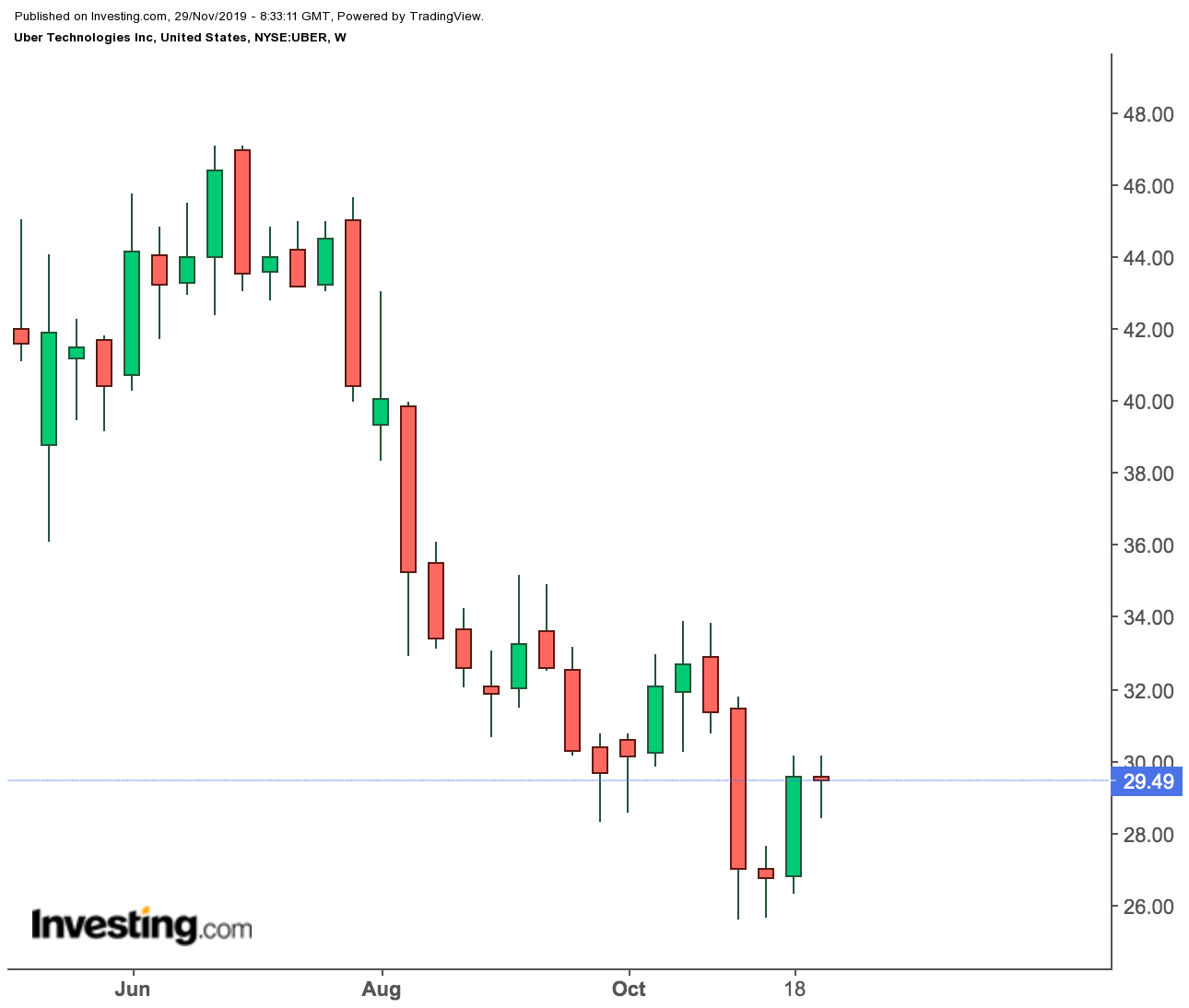The world’s largest ride-hailing company, Uber Technologies Inc (NYSE:UBER), is under siege these days. Its troubles are wide-spread, serious in nature, and have no quick fixes.
This week London’s transit authorities stripped the company of its license to operate over passenger safety issues, raising the possibility that the company could be deprived of its biggest European market if Uber’s appeal against the decision is rejected by the courts.
The regulator found unlicensed users pretending to be Uber drivers and faking their identities in at least 14,000 trips. Before the company got this new setback, it was struggling in other major jurisdictions to convince authorities that it’s doing its business properly and treating its drivers fairly.
A new California law is giving workers in the gig economy the right to a minimum wage. A similar battle will soon be underway in New York, where lawmakers are planning to take up gig worker legislation next year, according to a report in Bloomberg.
Tax authorities are also catching up with ride-hailing start ups. In November, New Jersey declared that Uber owes it $650 million in unemployment and disability insurance taxes because the ride-share company has been misidentifying drivers as independent contractors.
Amid this tight scrutiny of ride-hailing business world-wide, Uber investors have been the biggest losers. The company’s stock has lost more than 30% of its value from its IPO price of $45 a share and is now at $29.59 . And with these troubles brewing and its cash position remaining weak, there is no visibility on the future or on when the company will reach the path to profitability.
In its third-quarter earnings report released this month, Uber again disappointed investors showing weaker booking numbers and monthly active users, two of the metrics most closely watched by Wall Street. The company expects to lose between $2.8 billion and $2.9 billion this year.
Uber’s Evolving Platform
Losses from technology companies that are in a growth phase aren’t surprising. But what’s creating doubts about the San Francisco-based company is the absence of a clearly articulated strategy that could turn this unicorn into a profitable enterprise and overcome its regulatory challenges.
The London license threat emerged just at a time when some analysts have begun to call a bottom in Uber’s share price after a deep correction. But that call becomes very risky to make if the company doesn’t emerge a winner in a legal battle that could drag on for years.
Despite these setbacks, Uber's Chief Executive Officer Dara Khosrowshahi wants investors to focus on the strength of the company’s evolving platform, that he says will one day create the largest modern transportation ecosystem, including its ride-hailing service, its fast-growing food-delivery business — Uber Eats — electric scooters, freight delivery, driverless vehicles and even flying cars.
A latest addition to its expanding portfolio of services is Cornershop, which helps supermarkets, pharmacies and food retailers deliver their goods.
That all looks great and perhaps achievable for a tech-driven company that's changed the way people move from one place to another.
The 10-year-old company commands more than 65% of the ride-hailing market in the U.S., Canada, Latin America, Europe, Australia and New Zealand.
But that share is becoming tougher to defend when much smaller ride-hailing companies are posing new challenges and increasing competition globally.
For those investors who want to take on some exposure to the ride-hailing business, we find Uber’s biggest rival, Lyft Inc (NASDAQ:LYFT), a much better bet. Unlike Uber, Lyft is focused exclusively on transportation and is getting closer to achieving profitability.
The company beat analysts’ revenue estimates for the third quarter last month and raised its 2019 forecast, reiterating that it’ll turn a profit by the end of 2021.
Bottom Line
There is little hope that Uber stock will recover from its deep slump in 2020, given the growing scrutiny of its business and many regulatory hurdles that the company must cross before restoring investor confidence. In this uncertain environment, it is not the right time to bet on Uber stock.
